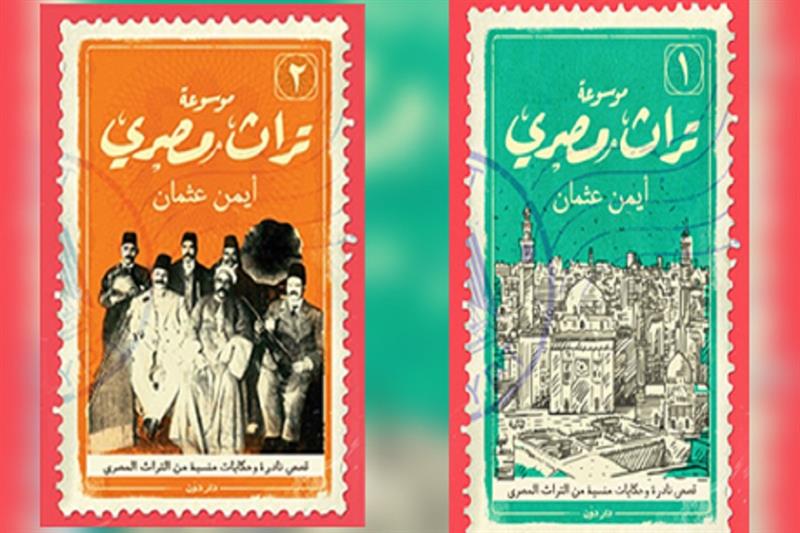
(Encyclopedia of Egyptian Heritage (volumes I II)
Mawsoua’at Tourath Masry (Encyclopedia of Egyptian Heritage) (volumes I&II) (200pp&220pp) – Dar Dawen
“Rare and often forgotten stories from the Egyptian heritage” is the subtitle that Ayman Othman has chosen for his two-volume book Mawsouaat Tourath Masry (Encyclopaedia of Egyptian Heritage) that came out from Dar Dawen in a series of editions starting 2017.
Reading through the close to 500 pages of the two volumes leaves one with an impression that the subtitle should have perhaps served as the one and only title.
The author is certainly sincere to the subtitle. He goes through the archives of old newspapers and magazines and makes an interesting and well-connected selection of stories that end up drawing the profile of life in Egypt – essentially Cairo – towards the end of the 19th and the early 20th centuries.
Essentially these are stories that depict the shift that Egypt embraced towards the end of the rule of Mohamed Ali into the years of the British occupation of Egypt. As such, it happens to be the story of embracing "modernity" and living through the years where Egypt knew its first theatre performances, its grand cabarets, cinemas, newspapers, and radio service.
The selection of stories, and also of figures, that Othman is sharing comes in quite a random manner, perhaps with the intention to be compatible with the light nature of the book. However random, these accounts end up leaving the reader with a set of pictures on the evolution of the press industry and entertainment business. For example, from the first volume one learns about the fact that papers were keen to cover crimes in view of the attention they receive from readers. In the second volume, one learns about the interest that the papers developed in covering news of theatre and cinema business and divas.
Then again, it is in the first volume that one learns that the British occupation started the first censorship department to make sure that their interests in Egypt were not compromised in any of the new film productions.
Othman’s two volumes also offer a read through the role of charity in promoting some essential services like education and health – essentially through the donations of the rich to build hospitals and universities.
With the exception of some attention to Ahmed Orabi and a considerable attention to Saad Zaghloul, the stories, old and maybe forgotten, that Othman selects for his two volumes share little on the politics of these years.
Also, with the exception of brief references to the debate on the role of women in the cinema industry and the furry prompted by the wish of leading 20th actor Youssef Wahbi to play Prophet Mohamed in a foreign production and the anger that Taha Hussein’s book On Pre-Islamic Poetry, Othman’s book is not delving much into the big debates of the times.
Ultimately, the two books are very easy and interesting reads that could feed on the vogue of nostalgia.
Short link: